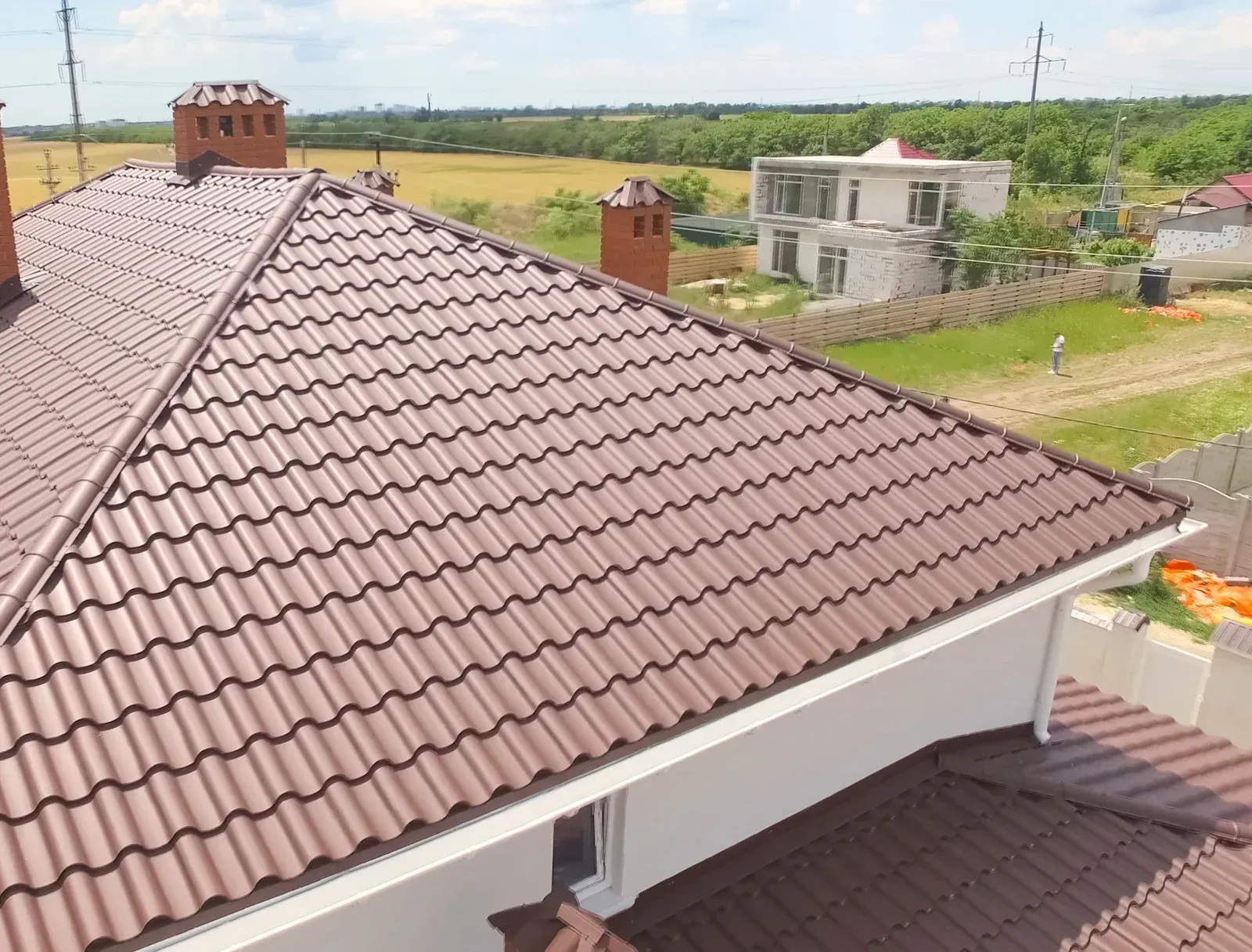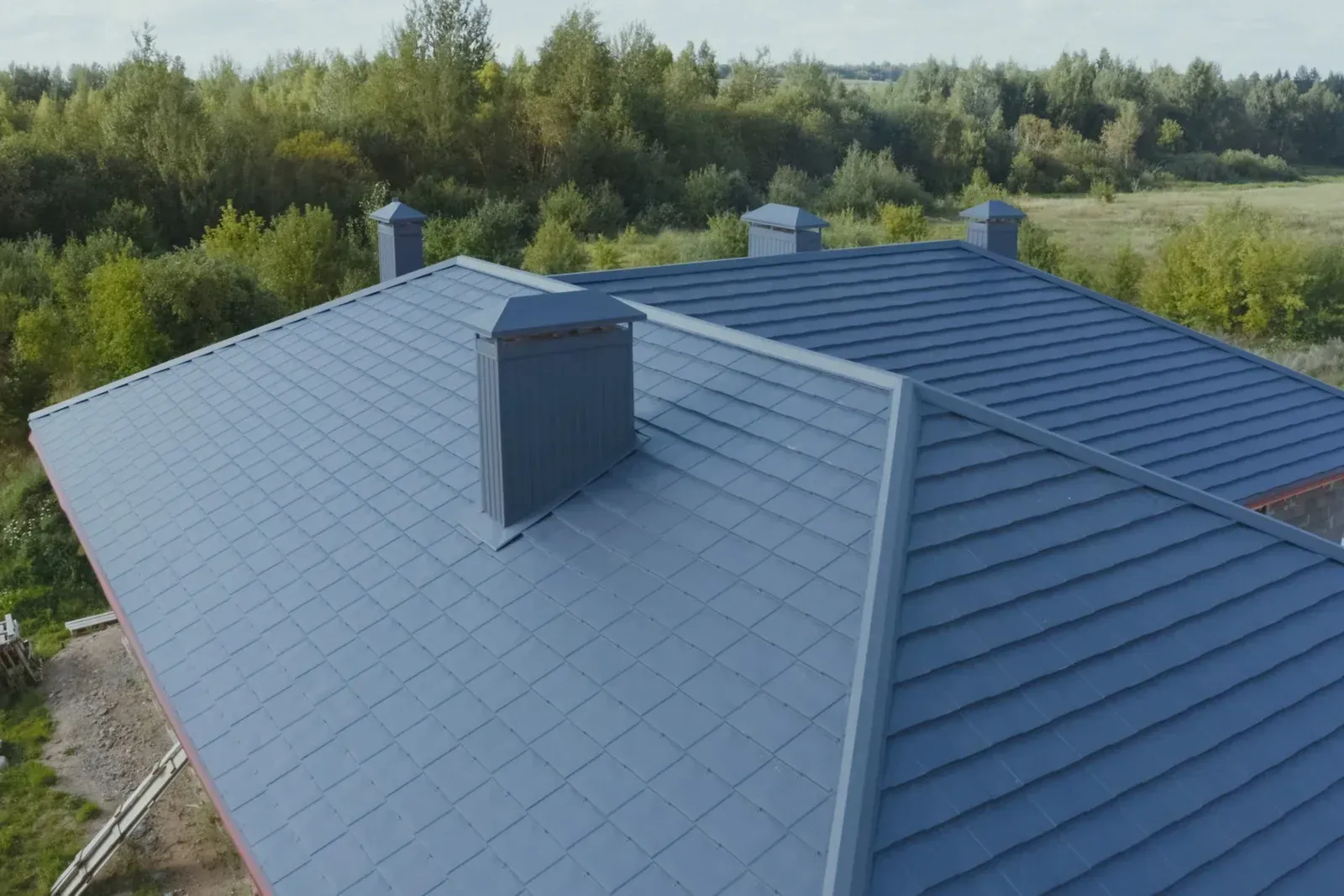Roof Replacement Services in Grand Junction, Colorado
OR GIVE US A CALL

Experience Lasting Protection with Expert Roof Replacement Today
High Valley Enterprises has earned its position as a trusted roofing contractor with 30 years of hands-on experience, proudly serving Grand Junction, Colorado, and surrounding regions, including Fruita, Palisade, Loma, Rifle, Moab, Montrose, Delta, and Cedaredge. Our reputation is built on technical excellence, attention to structural detail, and a deep understanding of the roof replacement needs of homes and commercial buildings across Western Colorado. With weather patterns that bring intense sun, seasonal winds, and winter moisture, homeowners and property managers rely on our expertise to ensure their roofs remain strong, stable, and built to withstand the region’s unique climate demands.
Roof replacement is a major investment, and choosing the right team determines long-term performance. Over the years, our professionals have developed a methodical approach that blends advanced installation practices with premium materials designed specifically for high-altitude, variable-temperature environments. Every project begins with a meticulous inspection to understand structural conditions, ventilation dynamics, and material compatibility. This commitment to accuracy ensures that every roof installed enhances overall property safety and energy efficiency while meeting modern roofing standards and building codes.
As roofing structures age, environmental pressure causes materials to deteriorate faster in mountainous and desert-edge climates like those in and around the region. Roofs exposed to prolonged UV radiation, rapid temperature shifts, and seasonal storms often experience hidden damage long before leaks appear. Our professionals approach roof replacement with long-term protection as the priority, focusing on durability, proper reinforcement, and correct system integration. For homeowners seeking peace of mind, improved home value, and reliable roofing performance year-round, our service provides the confidence that comes from experience, precision, and a proven track record.
Roof types
TPO (Thermoplastic Polyolefin)
- White, single-ply membrane
- Heat-welded seams
- Energy-efficient (reflects heat)
- Popular for commercial buildings due to cost and performance
EPDM (Ethylene Propylene Diene Monomer)
- Black (sometimes white), rubber membrane
- Seams are glued or taped
- Extremely durable and flexible
- Great for long-term performance and colder climates
PVC (Polyvinyl Chloride)
- Single-ply membrane, usually white
- Heat-welded seams (very strong)
- Highly resistant to chemicals, grease, and oils
- Common on restaurants and industrial buildings
Modified Bitumen (Mod Bit)
- Asphalt-based roofing system
- Installed in layers (torch-down, hot-mopped, or peel-and-stick)
- Very durable and puncture-resistant
- Often used on low-slope roofs and repairs
Our Roof Replacement Services
Complete Tear-Off and Roof System Installation
We provide a full tear-off process that removes all aged roofing materials before installation begins. This allows our team to identify hidden structural concerns and prepare a clean surface for proper attachment. We follow precise installation standards to ensure optimal durability, long-term adhesion, and superior roofing performance for every property we serve.
Asphalt Shingle Roof Replacement
Our asphalt shingle roof replacements include premium-grade shingles designed for strong weather resistance and long-term value. We use efficient installation techniques that improve ventilation and water flow, reducing future maintenance needs. Every replacement project is handled with detailed attention to alignment, sealing, and long-lasting structural support to ensure reliable protection.
Metal Roofing Replacement and Upgrades
We install high-quality metal roofing systems that offer exceptional strength and energy efficiency. Our team ensures correct panel fastening, underlayment preparation, and precise edging to maximize the system’s lifespan. Metal replacements performed by our specialists enhance durability, noise reduction, and year-round protection while maintaining architectural appeal and long-term structural stability.
Flat Roofing Replacement for Residential and Commercial Buildings
Our flat roof replacement service includes modern waterproof membranes designed to manage standing water and extreme temperatures. We carefully remove worn or damaged materials, reinforce weak areas, and install durable new membranes. With proper slope evaluation and drainage enhancements, our team ensures long-term performance and reduces maintenance concerns associated with flat roofing surfaces.
Roof Deck Repair and Reinforcement
We evaluate and reinforce roof decking to guarantee proper support before installing new materials. Our professionals replace weakened sections, secure structural connections, and prepare the deck for accurate material adhesion. This approach ensures the new roof system performs at its highest level, reducing long-term issues and maintaining safe, dependable support across the entire structure.
Ventilation and Insulation Improvements During Replacement
We upgrade ventilation and insulation components to improve energy efficiency and extend roof lifespan. During replacement, our team installs intake and exhaust systems that regulate attic airflow and reduce moisture buildup. These enhancements support temperature balance, prevent material deterioration, and contribute to a more stable, healthy roofing environment for every property we upgrade.
Benefits of Professional Roof Replacement
Long-Term Structural Protection
Professional roof replacement ensures full structural reinforcement, preventing hidden issues from worsening over time. This benefit delivers a secure and stable roofing system that resists deterioration caused by harsh weather, temperature variations, and moisture exposure. High-quality installation significantly reduces risks such as leaks, sagging, and premature material failure, ensuring dependable performance.
Enhanced Property Value and Market Appeal
A professionally replaced roof improves overall property value by offering visual appeal and long-lasting protection. Modern materials and proper installation give buyers confidence in the home’s condition, strengthening resale opportunities. This benefit supports long-term financial returns while ensuring the building remains competitive within the local housing market and inspection standards.
Improved Energy Efficiency and Indoor Comfort
Professional replacement enhances energy performance through updated materials and better ventilation systems. This benefit helps regulate indoor temperatures, reducing strain on heating and cooling equipment throughout the year. Improved insulation and airflow reduce energy loss, resulting in more comfortable living conditions and long-term savings on monthly utility expenses.
Reduced Maintenance and Fewer Repairs
A newly replaced roof minimizes the need for frequent repairs typically associated with aging materials. This benefit extends overall system longevity by eliminating weak points and outdated components that commonly fail. With professionally installed materials, the roofing system resists damage more effectively, reducing long-term maintenance costs and ensuring reliable performance.
Better Weather Resistance and Leak Prevention
Professional installation delivers stronger protection against rain, snow, wind, and UV exposure. This benefit includes advanced sealing methods that prevent moisture penetration and reinforce vulnerable areas. Proper material alignment and secure fastening techniques significantly reduce the risk of leaks, structural rot, and water-related damage throughout the roof’s lifespan.
Increased Safety and Code Compliance
A properly replaced roof ensures compliance with updated safety and building requirements. This benefit reduces risks associated with outdated materials, weakened structural components, and improper ventilation. By aligning with modern standards, the replacement supports safer living conditions and long-term durability while ensuring the roofing system meets regulatory expectations.
Protect Your Investment with Durable Roof Replacement Options
High Valley Enterprises brings unmatched knowledge, craftsmanship, and regional understanding to roof replacement projects throughout Grand Junction, Colorado, and nearby regions, including Crested Butte, Gunnison, Carbondale, Glenwood Springs, Vail, and Eagle. With decades of experience addressing the area's climate challenges, structural requirements, and roofing material demands, our team provides dependable replacement solutions built for longevity, safety, and performance.

Our process prioritizes durability, precision, and alignment with modern building standards. Every project receives thorough inspection, quality materials, and careful installation practices that support both long-term protection and improved property value. Whether replacing an aging roof, upgrading to modern materials, or addressing environmental wear, the service is carried out with the goal of delivering superior craftsmanship and reliable results.
BENEFITS 1
Insert content
BENEFITS 2
Insert content
BENEFITS 3
Insert content
FAQ's
Got Questions? We’ve Got Answers.
How long does a typical roof replacement take?
A roof replacement usually takes between a few days to a week, depending on material type, property size, and structural conditions. Weather, removal needs, and inspection processes can extend the timeline, but the goal is always to complete the project efficiently and safely.
What signs indicate it is time for a roof replacement?
Common indications include persistent leaks, curled shingles, loose materials, visible sagging, and repeated repair needs. Age plays a major role as well, since older roofs often develop hidden problems. A professional inspection confirms whether replacement is the most cost-effective long-term solution.
Can High Valley Enterprises replace roofs during winter in Grand Junction, Colorado?
Yes, we can perform roof replacements during colder months when conditions allow safe installation. Modern materials and controlled installation techniques support effective winter work. Weather monitoring and temperature-sensitive processes ensure quality, durability, and proper curing of all roofing components.
Will a roof replacement improve energy efficiency?
Yes, modern roofing materials and updated ventilation systems help regulate attic temperatures, reducing strain on heating and cooling equipment. Proper insulation and airflow management enhance year-round comfort and reduce energy waste. These improvements contribute to long-term energy savings and a more stable indoor environment.
How do I choose the right material for my new roof?
Material selection depends on budget, durability expectations, architectural style, and environmental conditions. Asphalt, metal, and membrane systems each offer unique advantages. A professional consultation helps identify the best material based on climate, long-term performance needs, and property-specific structural considerations.
Does roof replacement include new ventilation components?
Yes, most replacements involve updating ventilation to ensure proper airflow. Improved intake and exhaust systems reduce moisture buildup, prevent structural deterioration, and support balanced temperatures. Adequate ventilation is crucial for maximizing material lifespan and enhancing the overall performance of the roofing system.
How long will a newly replaced roof last?
The lifespan depends on material quality, installation standards, and climate conditions. Asphalt typically lasts decades, while metal systems offer even longer durability. Proper maintenance, correct ventilation, and protective installation techniques significantly extend the longevity of the newly replaced roof.
Does High Valley Enterprises serve properties in Fruita, Palisade, and nearby areas?
Yes, we serve Grand Junction, Colorado, and surrounding locations, including Fruita, Palisade, and other regional communities. This coverage ensures that residential and commercial clients across Western Colorado receive reliable roof replacement services supported by extensive experience and proven workmanship.
